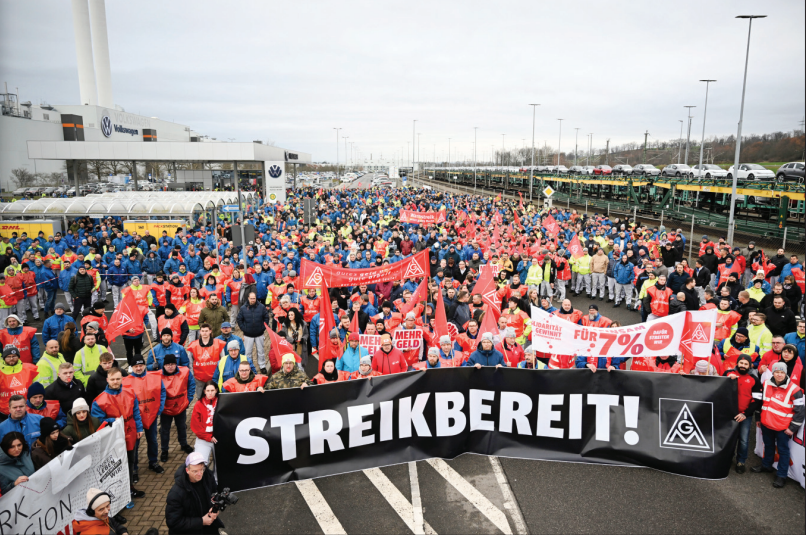
Workers at Volkswagen factories across Germany walked off the job on Monday after a dispute between the automaker and the IG Metall trade union over looming redundancies reached boiling point.
The series of rotating two-hour strikes impacted nine German car plants, including the company’s Wolfsburg headquarters, and was the workers’ response to the company’s plans to lay off thousands of workers and close factories in the face of competition that has led to dwindling orders and overcapacity.
The union has said the company, also known as VW, should be fighting back against competitors and offered to forgo workers’ bonuses and pay rises in the short term and make other changes that would save 1.5 billion euros ($1.6 billion).However, the industrial behemoth has said it would be insufficient to stop it hemorrhaging money in the long term.
The union has vowed to fight an impassioned battle to save the jobs under threat.
“If need be, it will be the toughest collective bargaining battle Volkswagen has ever seen,” IG Metall’s chief negotiator, Thorsten Groger, said as the fightback began. “How long and how intense this dispute (will be) is up to Volkswagen to decide at the negotiating table.”
The automaker, which has a workforce of 120,000 and is one of Germany’s largest employers, has been grappling with rising production costs and disappointing sales, especially of its new electric vehicles.
The company responded to Monday’s strikes by saying the two sides should return to dialogue in search of a “lasting solution that is collectively supported”. VW also said it had taken “advanced measures” to ensure vehicles would be delivered to customers on time.
Monday’s strikes were so-called “warning strikes”, which are a common tactic used in industrial negotiations in Germany to show the strength of feeling among workers.
While workers were expected to return to their places on the production line after the short, sharp strikes, IG Metall said the action could be expanded into the largest strike seen in the country for decades.
The threats of layoffs and closures flared after Volkswagen’s financial difficulties became apparent in October, when the company reported a 64-percent fall in third-quarter profits.
VW said slower sales in China and a fall in demand in Europe to the tune of around 500,000 vehicles a year were the main reasons for its situation.
VW recently said it intends to sell its factories in China’s Xinjiang Uygur autonomous region and close three factories in Germany. It also wants to cut tens of thousands of jobs in Germany, and reduce the salaries of its German workforce by 10 percent.
The company and the union are set to begin the next round of negotiations on Dec 9.
earle@mail.chinadailyuk.com